Need news faster? Add our ‘Daily Alerts’ newsletter for time-sensitive information like rare, limited edition titles just announced or back in stock. Also, we highlight flash 24-hour sales on select products. [Subscribe Here]
$159.00 — or $159.00 Original price was: $159.00.$39.75Current price is: $39.75. / month for 4 months
Limited to 1200 copies; bound in fine black cloth emblazoned with a gilt shield bearing seven keyholes, blackened edges, textured endpapers in British racing green, and a black ribbon. 8vo (245 × 170 mm) 368 pp Colour facsimile of British Library Additional manuscript 36674
Illustration of the Tree of Crystal by Sin Eate
Book is in fine condition
Published by Scarlet Imprint
Currently Unavailable
This product is not available at the moment.
Would you like to get notified when this product is in stock ?
Out of stock
Limited to 1200 copies; bound in fine black cloth emblazoned with a gilt shield bearing seven keyholes, blackened edges, textured endpapers in British racing green, and a black ribbon. 8vo (245 × 170 mm)
368 pp
Colour facsimile of British Library Additional manuscript 36674
Illustration of the Tree of Crystal by Sin Eate
Published by Scarlet Imprint 2020
An Excellent Booke of the Arte of Magicke: The Magical Works of Humphrey Gilbert and John Davis, transcribed from British Library Additional manuscript 36674, edited and introduced by Phil Legard, with supplementary essays by Alexander Cummins, and a foreword by Dan Harms.
The first part of the book, Texts, opens with a colour facsimile of ff.47r–62v from Add. ms. 36674, known as the Excellent Booke and Visions, followed by modernised and diplomatic transcriptions.
The magical experiments conducted by Elizabethan explorer, soldier and courtier Humphrey Gilbert, along with his scryer John Davis, during the spring of 1567 are notable for their forceful methods and stripped down Protestant ritual. The spirits are called into a ‘crystal stone’ by way of a large number of conjurations, charges, constraints, curses and bonds. The work includes the practical conjuration of Bleth, Aosal, Assassel (Azazel) and the four demon kings of the winds, namely Oriens, Amaimon, Paimon and Aegyn. It is evidently based on an older text or texts, adapted to the Protestant outlook of the period, and has also been supplemented with revelations and guidance received first-hand by Gilbert and Davis over the course of its composition. As such, the texts are a rare example of the poiesis, or coming-together, of a ritual magic book. The texts attest to the continuity of medieval ritual magic into the early modern period.
Visions is a record of visions in the crystal, detailing events which took place before, during and after the composition of the Excellent Booke. In the course of this work, the master – Humphrey Gilbert – and scryer – John Davis – converse with a wide-range of spirits as well as religious and occult personalities, including Assasel, Solomon, Roger Bacon, Cornelius Agrippa and four angelic evangelists. The pair experience a series of remarkable sights concealed behind the seven-keyholed door of the house of Solomon. On occasion the visions bled into the waking world in encounters with great demonic dogs and the physical manifestation of the prophet Job.
The Excellent Booke and Visions are, as Legard writes in his Preface, ‘unique documents of sixteenth century magical practice: ones that deserve to be widely read and studied by scholars and practitioners alike since they preserve a detailed account of both the making and the use of a grimoire.’ A book of particular note to those interested in Azazel, the fallen angel and necromantic traditions, students of the grimoires and the practical workings of dirty medieval magic.
Appended to the Excellent Booke are three further, related manuscript transcriptions, the necromantic graveyard ritual in Experiments of Azasel, Ancor, Anycor and Analos, from Illinois Pre-1650 ms. 0102, the scrying procedure of An Experiment of Bleth, from Sloane 3824, and the necromantic and treasure hunting rites of Related Experiments, from Case ms. 5017.
In the second part of the book, Contexts, Dr Alexander Cummins provides a trilogy of essays. He first surveys early modern necromancy, its tools and techniques in their historical setting. He then discusses scrying techniques in depth, with reference to Artephius, Dee and Kelley, Aubrey, Lilly, Forman et al. He concludes with a discussion of tutelary shades, and the learning of magic from dead magicians, whether Solomon, Adam, Cornelius Agrippa or Roger Bacon. Thus armed, the appropriately black-clad reader can engage with the Excellent Booke as a practical grimoire of the necromantic art.
Phil Legard draws the book to a close with an essay on the phenomenology of the necromantic workings of Gilbert and Davis which provides an open door for both practitioners and academics through which to pursue the performative and affective practice of magic.
CONTENT:
Acknowledgments
Foreword: The Best Book That Ever Was?
Preface
Visionary Magicke: Humphrey Gilbert and the Poiesis of a Grimoire
PART ONE: TEXTS
Facsimile
A Note on the Transcriptions
An Excellent Booke of the Arte of Magicke
Modernised Transcription
Diplomatic Transcription
Visions
Modernised Transcription
Diplomatic Transcription
Experiments of Azasel, Ancor, Anycor and Analos, from Illinois Pre-1650 MS 0102
Modernised Transcription
Diplomatic Transcription
An Experiment of Bleth, from Sloane 3824
Modernised Transcription
Diplomatic Transcription
Related Experiments, from Case MS 5017
Modernised Transcription
Diplomatic Transcription
PART TWO: CONTEXTS
Sorcerous Significances of the Excellent Booke and its Visions
By Stone and By Call: Medieval and Early Modern Evocatory Scrying
Tutelary Shades
Good Books to Call By: Text, Speech and Materiality in the Necromantic Workings of Humphrey Gilbert and John Davis
Bibliography
| Weight | 4.0 lbs |
|---|
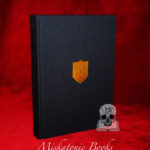 AN EXCELLENT BOOKE OF THE ARTE OF MAGICKE by Phil Legard & Alexander Cummins - Limited Edition Hardcover
AN EXCELLENT BOOKE OF THE ARTE OF MAGICKE by Phil Legard & Alexander Cummins - Limited Edition Hardcover
| 5 star | 100 | 100% |
| 4 star | 0% | |
| 3 star | 0% | |
| 2 star | 0% | |
| 1 star | 0% |
Scarlet imprint is known for their quality productions, and An Excellent Booke is another of their beautiful and magical publications. This being the standard hardcover, you feel as though you are holding all the keys to magic in your hands. The black binding and black text block instantly draw you in, the dark green textured end papers and heavy thick paper stock arouse the senses of touch, and of course the content does you in entirely. The translation of this Elizabethan manuscript is phenomenal, and the facsimile is reproduced in outstanding quality. This exploration of 16th century magic is another necessity to any occult library.
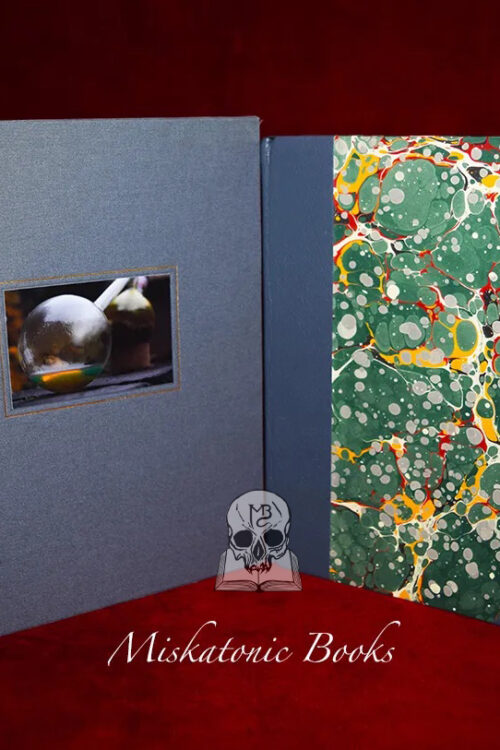
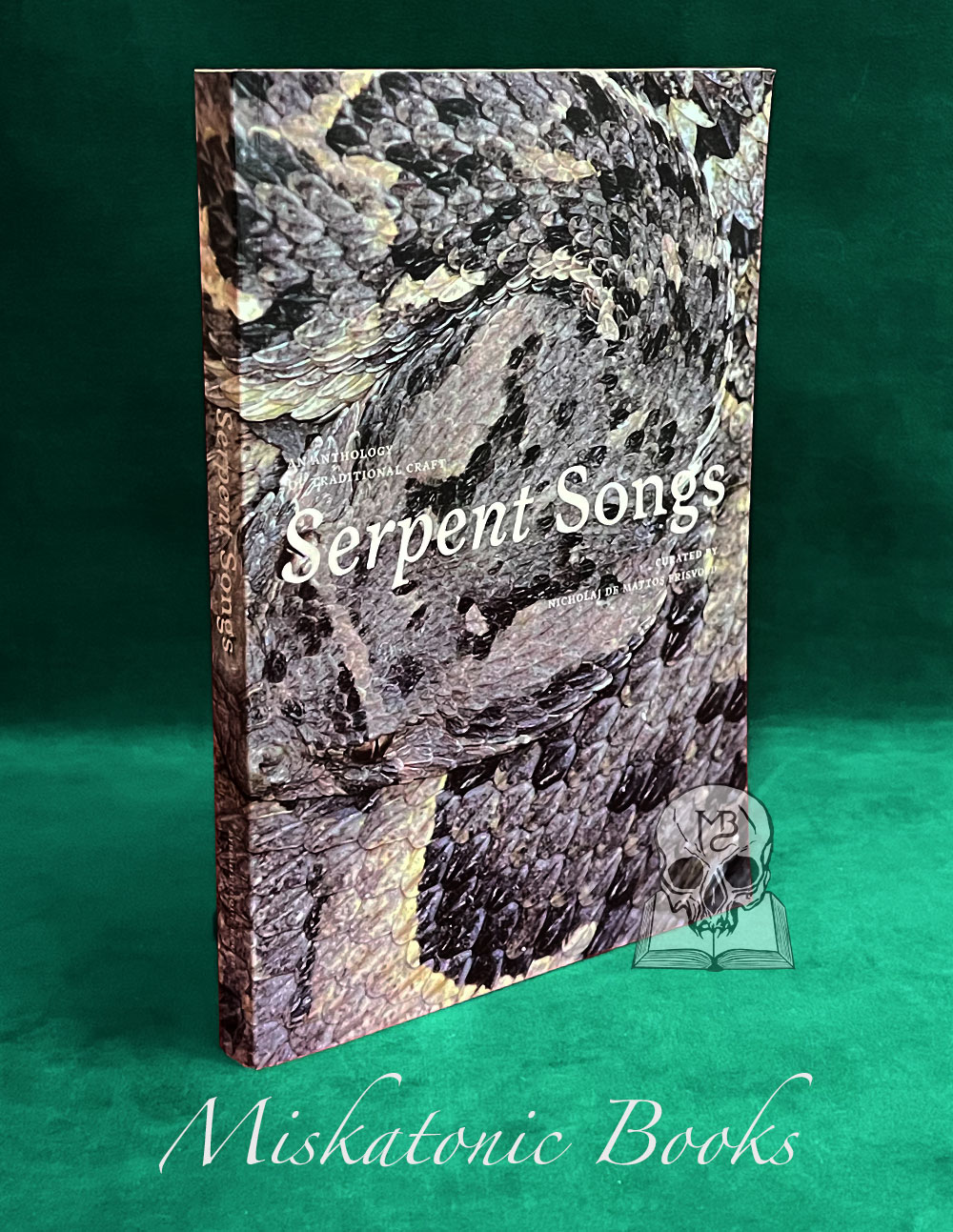
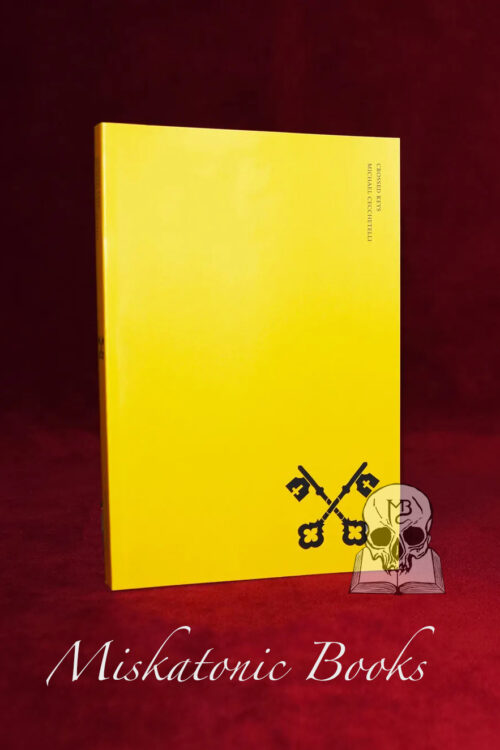
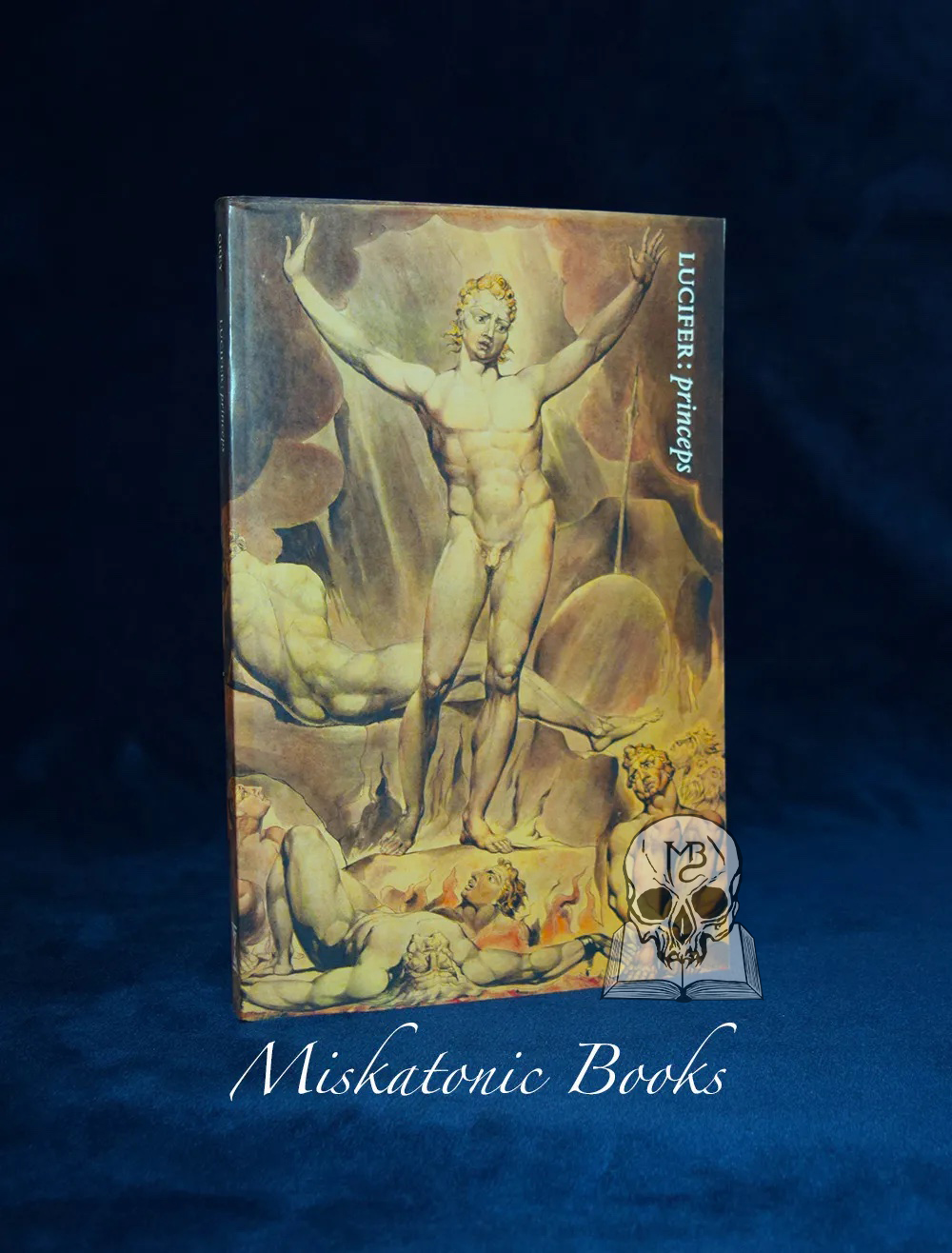
Need news faster? Add our ‘Daily Alerts’ newsletter for time-sensitive information like rare, limited edition titles just announced or back in stock. Also, we highlight flash 24-hour sales on select products. [Subscribe Here]

Add this product to a collection.
0 lists
Manage